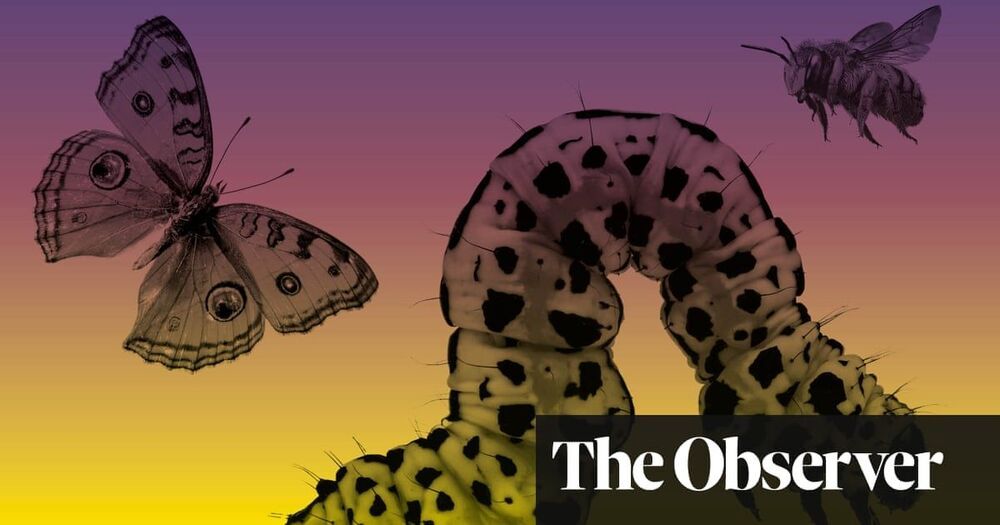Few people seem to realise how devastating this is, not only for human wellbeing – we need insects to pollinate our crops, recycle dung, leaves and corpses, keep the soil healthy, control pests, and much more – but for larger animals, such as birds, fish and frogs, which rely on insects for food. Wildflowers rely on them for pollination. As insects become more scarce, our world will slowly grind to a halt, for it cannot function without them.
A strong argument can be made that humans ought to farm more insects as an alternative to pigs, cows or chickens. Farming insects is more energy efficient and requires less space and water. They are a healthier source of protein, being high in essential amino acids and lower in saturated fats than beef, and we are much less likely to catch a disease from eating insects (think bird flu or Covid-19). So if we wish to feed the 10–12 billion people who are projected to be living on our planet by 2050, then we should be taking the farming of insects seriously as a healthier source of protein and a more sustainable option to conventional livestock.
While western societies may not eat insects, we do regularly consume them at one step removed in the food chain. Freshwater fish such as trout and salmon feed heavily on insects, as do game birds like partridge, pheasant and turkey.
Aside from their role as food, insects perform a plethora of other vital services in ecosystems. For example, 87% of all plant species require animal pollination, most of it delivered by insects. The colourful petals, scent and nectar of flowers evolved to attract pollinators. Without pollination, wild flowers would not set seed, and most would eventually disappear. There would be no cornflowers or poppies, foxgloves or forget-me-nots. But an absence of pollinators would have a far more devastating ecological impact than just the loss of wild flowers. Approximately three-quarters of the crop types we grow also require pollination by insects, and if the bulk of plant species could no longer set seed and died out, then every community on land would be profoundly altered and impoverished, given that plants are the basis of every food chain.
